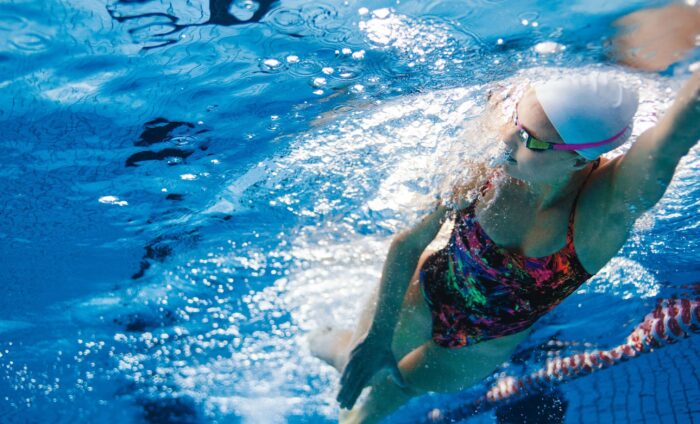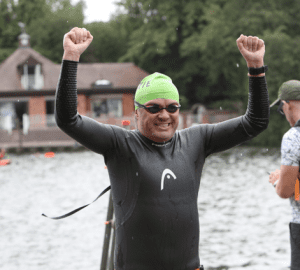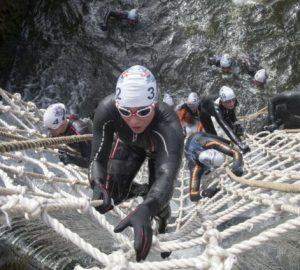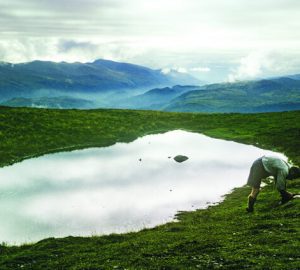
How lockdown could make you a better swimmer
Swim coach Ray Gibbs from Swim Canary Wharf and Alice Todd from SwimQuest Holidays discuss the benefits of a break from swimming over lockdown
Alice: Why is the enforced break from swimming over lockdown not necessarily a bad thing?
Ray: Obviously for people that depend on swimming for fitness and wellbeing, lockdown has been an unbelievably tough and frustrating time. But the upside is that they haven’t been repeating and cementing flawed technique – and their bodies will now accept changes to muscle memory much more readily. I have seen this new-found adaptability so many times in the past when I’ve been teaching clients that have been out of the water due to illness, injury or other reasons.
Alice: So swimmers should not simply go back to their old routine when the pools are open again?
Ray: In my opinion, for a great deal of swimmers the answer (in the short term at least) should be no.
The word I hear most from my new clients is ‘plateau’. “It doesn’t matter how much I swim, or what sets I do, I don’t get any faster”.
Let’s think about why swimmers plateau and I’ll use you as an example Alice. You said when we met today that you are ‘flying’ on your bike because you have been cycling so much. So why doesn’t swimming work in exactly the same way when more volume/effort is added? Well, it’s a simple matter of biomechanics and physics. When you bought your bicycle, the shop made sure it was the right size and took a great deal of care to custom fit it to you, ensuring that you the fixed points – saddle height, crank length, stem length/height etc are fine tuned to make your biomechanics are as efficient as possible and at the same time making you aerodynamic. If you had ridden an ill-fitting bike over the last few months, you would have got fitter, but nowhere near as fast as you have.
Technique work is the same as a bike fit. Sound front crawl technique (with excellent physics and biomechanics) will allow you to achieve your athletic potential in the water. But (and it is a big but!) unlike a bicycle, there are no fixed points, so it takes a lot more time and application to get to this point.
Alice: I really struggle to let go of the urge to push myself in terms of speed and distance. Is that quite common?
Ray: Very common indeed. For swimmers who have only limited time in the water, the temptation is so strong to get ‘yardage’ when they get the chance. But the frustration of a couple of months of good practice is nothing compared to the frustration of looking back at yet another season of unchanged swim splits.
Alice: You’re a big advocate of drills. Why is it you feel drills are so effective?
Ray: Let me be clear: drills done badly and/or too close to the season are worse than useless. The swimmer will not build correct muscle memory and therefore will not improve. Reading about a drill in a magazine or watching it online is a start, but no substitute for being taught well by an experienced teacher who will give you the correct tools to specifically address your flaws. You don’t need a whole raft of drills, you need one or two drills that apply to you at a particular point in your development.
Alice: What advice would you give anyone looking to improve their technique when lakes and pools reopen?
Ray: I am a firm believer that a heated pool is the place to refine stroke technique. It’s a huge mistake to abandon the pool once lakes etc have opened up. Any of the elite open water swimmers that contribute to this magazine will tell you that they do more pool work than open water work at any point in the season. Obviously there are skills that can only be practised in open water, but they are a lot easier to achieve if you have the basics already in the bag.
Alice: The SwimQuest week in Formentera is one of my favourite trips (and not just because of the beach mojitos!). What should swimmers expect from the trip?
Ray: For many, October seems like a strange time of year to have a ‘swim technique week’ but it is not a traditional, pre-season, high intensity, tip of the pyramid training camp. I deliberately run it at a time of year where races and goals are over the horizon. A time of year when swimmers can (and in my opinion should) address the issues that are holding them back. It is not a camp where we time you on the first day and again on the the last and say ‘there you go, job done!’ This trip is just the very start of your process, and a process it is… my aim on these trips is to highlight and explain the issues that are holding each person back and, crucially, provide the tuned tools that will rectify them (by repetition) over the winter.
Alice: Can you summarise your approach In six words?
Ray: Explanation, demonstration, imitation, repetition, repetition, repetition
With over 28 years swimming teaching experience, Ray Gibbs has developed a clear step-by-step approach to stroke technique development. At Swim Canary Wharf he offers true one to one lessons in a facility designed specifically for learning technique. swimcanarywharf.com
Co-founder of SwimQuest Swimming Holidays, open water has always been a passion for Alice. She has always found as much time as possible to spend in pools, rivers, lakes and the sea – swimming, diving and freediving. swimquest.uk.com







